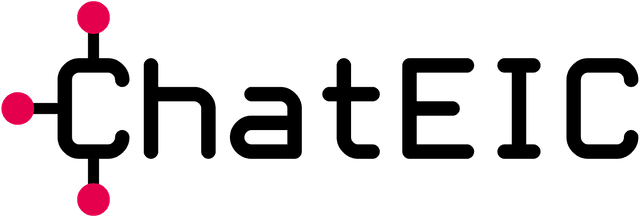
Should a Company Hire a Professional Consultant or Write an EIC Accelerator Grant Application Internally? (SME Instrument Phase 2)
The EIC Accelerator Grant financing (SME Instrument Phase 2) is an interesting opportunity for both early-stage startups and established Small and Medium-sized Enterprises (SME) that aim to further develop an innovative product. Many prospect applicants ask themselves if they should write an application on their own or if they should hire a professional consultant or grant writer who could prepare a successful application for them.
Answering this question can be difficult since it does depend on the individual companies skill set as well as past success in securing financing in highly competitive evaluation processes. Since consultants are often not the best people to ask if they should be hired or not, here is a basic list of things to consider for companies to make an informed decision regarding grant writing services:
Project Quality
The first question to be answered is with respect to the quality of the project. While a broad spectrum of industries and projects are eligible for an application, the success chances can vary greatly based on certain criteria such as innovativeness, commercial traction, European impact and the quality of the team (read: Identifying a Broad Vision).
This quality aspect is often difficult to assess for companies (i.e. "My company is the best!") so it is recommended to reach out to a variety of consultancies and get a free assessment regarding the project quality, especially in terms of its innovative character. This can be a useful first step in planning the EIC Accelerator application process.
The Skill of Writing Proposals
From experience, most companies have very little expertise in writing, editing and perfecting competitive grant proposals but such a skill is absolutely essential in being successful. Even the most unique and excellent unicorn-company cannot succeed in securing the EIC Accelerator grant without great proposal writing. Some companies are naturally well-positioned to apply on their own and reach high evaluation scores but this is quite rare.
If a company has the skills needed for such an application then they usually have a strong track record of obtaining research grants with extensive experience in writing business plans, crafting commercial strategies and having had exhaustive feedback from investors and related stakeholders. This part is difficult to self-assess since most companies believe that they have such expertise but very few are actually correct since the template of the EIC Accelerator is highly simplified and does not properly reflect what an application should contain (read: The Biggest Mistakes When Applying to the EIC Accelerator).
Time & Focus
The time and focus needed to prepare an application and to perform potential re-submissions, research the evaluation process and master the subsequent hurdles that lead up to participating in the evaluation interview (i.e. pitch event) and signing the grant agreement contract all need to be calculated into the decision of hiring a grant consultant. Most companies lack the freedom to focus on such tasks and diverting their attention away from their core business or research can be detrimental in many cases.
As a result, hiring a writer is a great option since it removes all of the time-consuming efforts and reduces the workload to the simple gathering of data and the provision of feedback on certain aspects of the project (read: The Financing Timeline for the EIC Accelerator).
Financial Considerations
Some early-stage SME's or startups are not in a position to pay the fees that are charged by consultancies which can make financial factors a possible barrier in seeking grant writing support. What needs to be considered is the budget a company has available for the writing process and what the opportunity-cost would be if internal team members spend 30 to 60 days in preparing an application as well as the time spent on re-submissions and editions which can span over a year in total. Since this time could be used for product development activities, businesses should carefully assess the internal costs related to preparing an application.
External consultancies that are offering grant writing services can vary greatly in their business models and fee structures which is why it is recommended to identify a number of different options and to discuss the pricing with each of them before making a decision. This way, the ideal budget for a startup can be assessed and an informed decision can be made (read: Pre-Requisites for an EIC Accelerator Application).
Summary
The major components to be assessed when considering to hire a professional writer or consultant for the EIC Accelerator are:
- Project Quality: Is the project suitable for the EIC Accelerator?
- Internal Skill Level: Does the team have the skill level necessary to apply?
- Time & Focus: Can the company divert their focus from their core business activities?
- Finances: Is the company able to afford a consultancy or cannot afford to prepare it internally?
These tips are not only useful for European startups, professional writers, consultants and Small and Medium-Sized Enterprises (SME) but are generally recommended when writing a business plan or investor documents.
Deadlines: Post-Horizon 2020, the EIC Accelerator accepts Step 1 submissions now while the deadlines for the full applications (Step 2) under Horizon Europe are listed below. The Step 1 applications must be submitted weeks in advance of Step 2. The next EIC Accelerator cut-off for Step 2 (full proposal) can be found here. After Brexit, UK companies can still apply to the EIC Accelerator under Horizon Europe albeit with non-dilutive grant applications only - thereby excluding equity-financing. Switzerland has resumed its participation in Horizon Europe and is now eligible for the EIC Accelerator.
EIC Accelerator Step 1 Deadline 2025
Contact: You can reach out to us via this contact form to work with a professional consultant.
AI Grant Writer: ChatEIC is a fully automated EIC Accelerator grant proposal writer: Get it here.
EIC Accelerator: EIC Accelerator delivers flexible funding options including blended finance (€2.5M grant + €0.5M-€10M equity), grant-only (up to €2.5M), or equity-only arrangements for scale-up and market deployment of breakthrough innovations. The initiative targets SMEs, start-ups, and small mid-caps with up to 499 employees. Technology areas include Biotech, Engineering, Artificial Intelligence, Energy, Quantum, Aerospace, Advanced Materials, and Semiconductors. Get Started
EIC Pathfinder: EIC Pathfinder delivers up to €3 million for Open calls and up to €4 million for Challenge-based calls to support early-stage research and development with proof-of-principle validation. The initiative requires research consortia with a minimum of 3 partners from 3 different countries, including universities, research organizations, and SMEs. Primary technology focus areas include Health/Medical, Quantum Technologies, AI, Environmental/Energy, and Advanced Materials. Get Started
EIC Transition: EIC Transition delivers up to €2.5 million in funding to overcome the 'valley of death' gap between laboratory research and market deployment, emphasizing technology maturation and validation. The initiative supports single legal entities or small consortia of 2-5 partners including SMEs, start-ups, spin-offs, and research organizations. Key technology domains include Health/Medical Technologies, Green/Environmental Innovation, Digital/Microelectronics, Quantum Technologies, and AI/Robotics. Get Started
EIC STEP Scale-Up: EIC STEP Scale-Up delivers significant equity investments of €10-30 million for established deep-tech companies prepared for hyper-growth and large-scale expansion. The initiative targets SMEs or small mid-caps with up to 499 employees who have obtained pre-commitment from qualified investors. Primary focus areas include Digital & Deep Tech (Semiconductors, AI, Quantum), Clean Technologies for Net-Zero objectives, and Biotechnologies. Get Started
EIC Pre-Accelerator: EIC Pre-Accelerator represents a pilot initiative delivering €300,000-€500,000 in funding for early-stage deep-tech development and preparation for the EIC Accelerator program. This program is exclusively accessible to single SMEs or small mid-caps from 'Widening countries' to foster regional innovation development. The initiative encompasses deep-tech innovations across physical, biological, and digital domains. Get Started
EIC Advanced Innovation Challenges: EIC Advanced Innovation Challenges represents a new pilot initiative delivering €300,000 (Stage 1) and up to €2.5 million (Stage 2) for breakthrough deep-tech innovations through ARPA-style staged funding mechanisms with integrated demand-side engagement. This initiative targets single entities or small consortia (2-3 partners) including SMEs, start-ups, and research organizations. Primary focus areas include Physical AI for autonomous robotics applications and New Approach Methodologies (NAMs) for animal-free biomedical testing, with TRL 4 entry requirements and demonstrated end-user commitment. Get Started
Eureka Network: The Eureka Network delivers various international collaborative R&D initiatives such as Network Projects, Clusters, Eurostars, Globalstars, and Innowwide, providing funding from €50K to €6.75M per project based on the specific initiative. This network emphasizes market-driven innovation and deep-tech advancement across multiple technology sectors including ICT/Digital, Industrial/Manufacturing, Bio/Medical Technologies, Energy/Environment, Quantum, AI, and Circular Economy. Eligible participants include SMEs, large enterprises, research organizations, universities, and startups, with Eurostars particularly focused on R&D-performing SMEs. Get Started
Eurostars: Eurostars represents a joint EU-Eureka initiative delivering €50K-€500K for international R&D collaboration specifically led by SMEs. The program adopts a bottom-up approach, accepting projects from all technology fields without predefined thematic restrictions. R&D-performing SMEs must lead the consortium and demonstrate significant R&D activities. Get Started
Innovation Partnership: Innovation Partnership enables collaborative innovation between public and private sectors with typical funding of €1-5 million per project. The initiative supports cross-sectoral strategic technologies through public-private partnerships and consortia. Projects concentrate on addressing societal challenges through collaborative innovation approaches. Get Started
Innovation Fund: The EU Innovation Fund delivers substantial funding of €7.5 million to €300 million for large-scale demonstration of innovative low-carbon technologies. The initiative targets clean energy, carbon capture, renewable energy, and energy storage technologies to accelerate the transition to a low-carbon economy. Eligible participants include large companies, consortia, and public entities capable of implementing large-scale demonstration projects. Get Started
Innovate UK: Innovate UK delivers various programs with funding ranging from £25K to £10M depending on the specific initiative, supporting business-led innovation, collaborative R&D, and knowledge transfer. The organization funds projects across all sectors with particular emphasis on emerging technologies and supports UK-based businesses, research organizations, and universities. Programs are designed to drive economic growth through innovation and technology commercialization. Get Started
Industrial Partnership: Industrial Partnership delivers €2-10 million in funding for industrial research and innovation partnerships focusing on manufacturing, industrial technologies, and digital transformation. The initiative supports industrial consortia and research organizations in developing collaborative solutions for industrial challenges. Projects aim to strengthen European industrial competitiveness through strategic partnerships. Get Started
LIFE Programme: The LIFE Programme delivers €1-10 million in funding for environmental protection, climate action, and nature conservation projects across the European Union. The initiative supports environmental technologies, climate adaptation strategies, and biodiversity conservation initiatives. Eligible participants include public authorities, private companies, NGOs, and research institutions working on environmental and climate challenges. Get Started
Neotec: Neotec represents a Spanish initiative delivering €250K-€1M in funding for technology-based business creation and development, supporting the growth of innovative Spanish SMEs and start-ups. The program covers all technology sectors and aims to strengthen Spain's technology ecosystem. Funding is specifically targeted at Spanish technology-based SMEs and start-ups to enhance their competitiveness and market presence. Get Started
Thematic Priorities: EU Thematic Priorities encompass various programs aligned with EU strategic priorities including green transition, digital transformation, health, and security initiatives. Funding amounts vary based on the specific program and call requirements, with projects designed to address key European challenges. Applicant eligibility varies by specific program and call, with different requirements for different thematic areas. Get Started
Any more questions? View the Frequently Asked Questions (FAQ) section.
Want to see all articles? They can be found here.
For Updates: Join this Newsletter!
